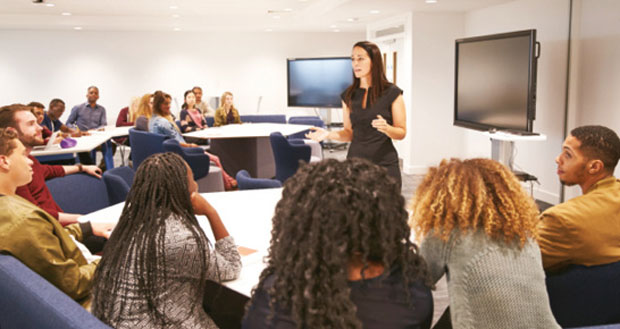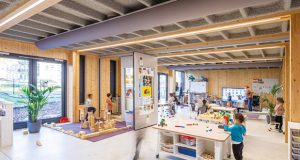 Ian Meaden, COO of EMCOR UK, argues for organisational commitment to nurturing talent and cultivating a culture of continuous learning
Ian Meaden, COO of EMCOR UK, argues for organisational commitment to nurturing talent and cultivating a culture of continuous learning
In 2023, Ciphr reported that 82 per cent of surveyed employees were more likely to have job satisfaction if they felt a sense of belonging at work. Seventy Eight per cent reported that they would feel loyal to their organisation if they belonged.
It’s simple really – the better an employer can meet the needs of employees, the better its employee retention. Employees need to take centre stage, along with the environments that fuel their exceptional experiences. Among the many reasons to enhance this experience is that it’s pivotal to creating the right customer experience.
To do that, leaders need to develop strong relationships and communicate effectively with colleagues. Those dynamics shape the basis of my beliefs as a senior leader. When there is a unity of purpose in an organisation, we are much more likely to succeed, both internally and for our customers. For us, that means innovating workplaces backed up by engineering excellence. Employees are empowered to anticipate customer needs and deliver exceptional services.
I started working at EMCOR UK in 1987 as an apprentice electrician before working my way up the ranks into a leadership position. Throughout my career, I have consistently found that customers value working with someone who takes the time to understand their business and what is important to them. My engineering background was beneficial as my experience in regulated and critical environments helped me to develop a logic that was transferable elsewhere; specifically, in our approach to understanding the effectiveness of the workplace in supporting our customers to achieve their business objectives.
Now, I want to create customers for life, which is only possible with the help of engaged employees. We need our employees to be constantly curious, so we offer training based on the Cranfield School of Management’s Key Account Management (KAM) programme. Our employees can consistently upskill. Employees should be supported, listened to, and given room for growth. Those principles shape part of our employee training and retention strategy because it is the best path to job satisfaction.
WORKPLACE OPTIMISATION
As an FM organisation, an in-depth understanding of employee needs, from head office to frontline colleagues, is paramount, especially as this impacts the experiences of our customers. Healthy businesses require healthy mindsets, which requires an intersectional approach within our business.
Only a few decades ago, wellbeing teams, safety managers, and HR teams either worked in silos or were not part of the employee wellbeing and satisfaction development of an organisation.
Now, businesses need to develop a whole-person approach to develop internal social inclusivity. Project leaders need to collaborate with teams like the HR department, or a wellbeing and sustainability department, to develop a framework for employee wellbeing and support. The occupational health and safety management guideline for workplace psychological risk, ISO 450003, is an example of an actionable ESG standard that an organisation can hold itself accountable towards.
Physical risk should be addressed comprehensively too – especially when frontline workers comprise a significant portion of the workforce. Our long-term commitment to customer collaboration and safety is evidenced by our recent wins at the 2024 Royal Society of the Prevention of Accident (RoSPA) awards. This highlights how we strive to go above and beyond the health and safety requirements across all our customer sites.
STRATEGIC PARTNERSHIPS
Strategic partnerships are one way to ensure that as your business grows, your people grow with it. We worked with the Cranfield School of Management to develop our KAM training course, working in tandem with our internal training.
Operations leaders and support teams are taught the principles of KAM so they can adopt a practical approach to planning, analysing and implementing closer relationships with our strategic customer accounts. Our employees are taught how to develop meaningful value propositions to deepen customer relationships.
In turn, we use KAM not just to measure our people’s success in terms of profits or numbers, but to evaluate their maturity and growth. The art of KAM is not just about quantitative insight, but about assessing emotional intelligence, so that no matter the situation of our customers, we know exactly what to do and support them.
TEAM UNIFICATION
Good training and development results in a strong and unified culture, based around a vision of innovating workplaces and engineering excellence. This is why we have developed teams to address the key customer concerns around energy and carbon management, impactful ESG delivery, workplace optimisation, and building and asset management, all underpinned by data-driven insight to guide every choice. These areas require constant communication and collaboration, requiring a human-centric ethos.
Moving forward as an organisation requires a people-first approach. It’s imperative to understand your employees’ challenges, nurture their development, and help them to articulate their needs, so that you can better serve customers and create a sense of satisfaction for all.





